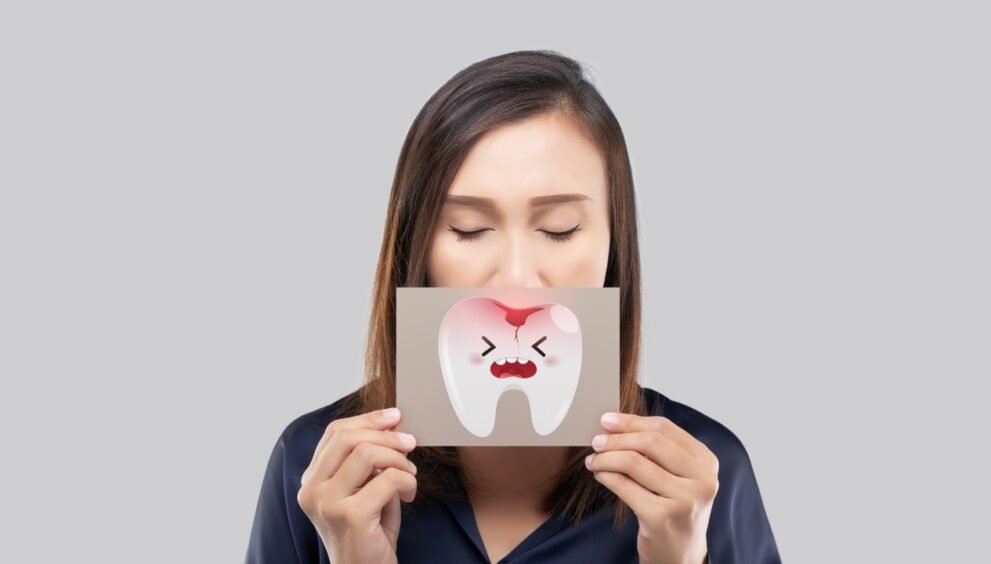How to Avoid Cavities: 7 Simple Strategies

Cavities are one of the most common dental issues affecting people of all ages. In fact, according to the American Dental Association, nearly 92% of adults between the ages of 20 and 64 have had a cavity in at least one of their permanent teeth. So, if you’re wondering how to avoid cavities and maintain a healthy, sparkling smile, you’re not alone. While the causes of cavities are well-known—plaque buildup, sugary diets, and poor oral hygiene—there are plenty of simple but effective strategies you can adopt to prevent tooth decay. In this blog, we will delve into the 7 most effective methods for cavity prevention that you can start incorporating into your daily routine today.
1. Brush Your Teeth at Least Twice a Day
Brushing your teeth is the most fundamental step in cavity prevention. According to Dr. John Smith, a renowned dentist,
“Brushing your teeth twice a day for at least two minutes is the best way to remove plaque—the sticky film of bacteria that leads to tooth decay.”
The key here is consistency. Regular brushing with fluoride toothpaste helps reduce plaque buildup and strengthens tooth enamel, making it more resistant to decay.
To get the most from your brushing routine, be sure to use a soft-bristled toothbrush and a fluoride toothpaste. Fluoride has been proven to help remineralize the enamel and prevent cavities. In addition, remember to replace your toothbrush every 3 to 4 months to ensure you’re effectively cleaning your teeth.
2. Floss Daily to Remove Plaque Between Teeth
While brushing your teeth is important, flossing is equally vital for cavity prevention. The American Dental Association recommends flossing once a day to remove plaque and food debris between teeth that your toothbrush can’t reach. Failing to floss allows plaque to accumulate between the teeth, which can eventually lead to cavities.
A study published in the Journal of Clinical Dentistry found that daily flossing significantly reduces the risk of tooth decay by removing harmful plaque and bacteria from areas where cavities often develop. If you’re not used to flossing, start slowly and gradually incorporate it into your routine. Your gums may bleed at first, but don’t be discouraged—it’s a sign that you’re effectively cleaning hard-to-reach areas.
3. Choose Foods That Promote Healthy Teeth
What you eat has a direct impact on your oral health. Sugary and acidic foods, like candy, soda, and processed snacks, can erode enamel and increase your risk of cavities. Instead, focus on incorporating tooth-friendly foods into your diet. These include dairy products like milk and cheese, which help to neutralize acids in the mouth and provide calcium for stronger teeth.
Additionally, crunchy fruits and vegetables such as apples, carrots, and celery can naturally scrub your teeth while stimulating saliva production. Saliva plays a crucial role in neutralizing acids and washing away food particles, helping to keep your teeth clean and healthy.
4. Drink Plenty of Water
Water is essential not just for your overall health, but also for maintaining a healthy mouth. Drinking water throughout the day helps rinse away food particles, bacteria, and acids that can contribute to tooth decay. Water also promotes saliva production, which is your mouth’s natural defense against cavities.
One of the best ways to keep your teeth healthy is to sip water between meals. This will help wash away any leftover food and reduce the amount of time your teeth are exposed to harmful acids. If you’re drinking sugary drinks or sodas, try to rinse your mouth with water afterward to minimize the negative effects on your enamel.
5. Get Regular Dental Checkups and Cleanings
Even if you’re following a rigorous oral hygiene routine, regular dental checkups are essential for cavity prevention. Your dentist can detect early signs of cavities, gum disease, and other oral health issues that may not be visible to the naked eye. Professional cleanings also remove plaque and tartar buildup that can’t be addressed with regular brushing and flossing.
The American Dental Association recommends visiting your dentist every six months for a routine checkup and cleaning. During these visits, your dentist will assess your oral health, clean your teeth, and offer advice on how to maintain good oral hygiene. Catching cavities early is key to preventing them from causing severe damage to your teeth.
6. Use Dental Sealants for Extra Protection
Dental sealants are a preventive treatment designed to protect the chewing surfaces of your back teeth, which are more prone to cavities. These thin plastic coatings are applied by your dentist to the grooves of your molars, forming a barrier that prevents plaque and food particles from getting stuck in these hard-to-reach areas.
Research published in the Journal of the American Dental Association shows that dental sealants can reduce the risk of cavities by up to 80% in the first two years after application. Sealants are a particularly effective option for children, but adults can benefit from them as well, especially if they have deep grooves in their molars.
7. Consider Fluoride Treatments
Fluoride is a powerful mineral that helps strengthen tooth enamel and prevent cavities. While most toothpaste contains fluoride, your dentist may recommend additional fluoride treatments if you’re at higher risk for cavities. These treatments involve applying a concentrated fluoride solution to your teeth, which can help remineralize weakened enamel and make it more resistant to decay.
Fluoride treatments are typically offered during your regular dental visits and are quick and painless. If you’re concerned about cavities, ask your dentist if fluoride treatments could be right for you.
Conclusion: Protecting Your Smile
In conclusion, preventing cavities is not as difficult as it may seem. By following these 7 proven strategies—brushing regularly, flossing, choosing tooth-friendly foods, drinking water, scheduling regular dental visits, using sealants, and considering fluoride treatments—you can significantly reduce your risk of tooth decay and maintain a healthy smile for years to come. Remember, cavities are preventable, and with the right care and attention, you can enjoy a lifetime of healthy teeth.
Taking care of your teeth today ensures that you’ll keep your smile bright tomorrow. As Dr. John Smith wisely said:
“The best way to avoid cavities is to develop good habits early on and stick with them. Prevention is always easier than treatment.”
you may also like
A Joy associated with Gambling house Wager: In which Risk Meets Reward







































































































































































































































































































































































































































































































